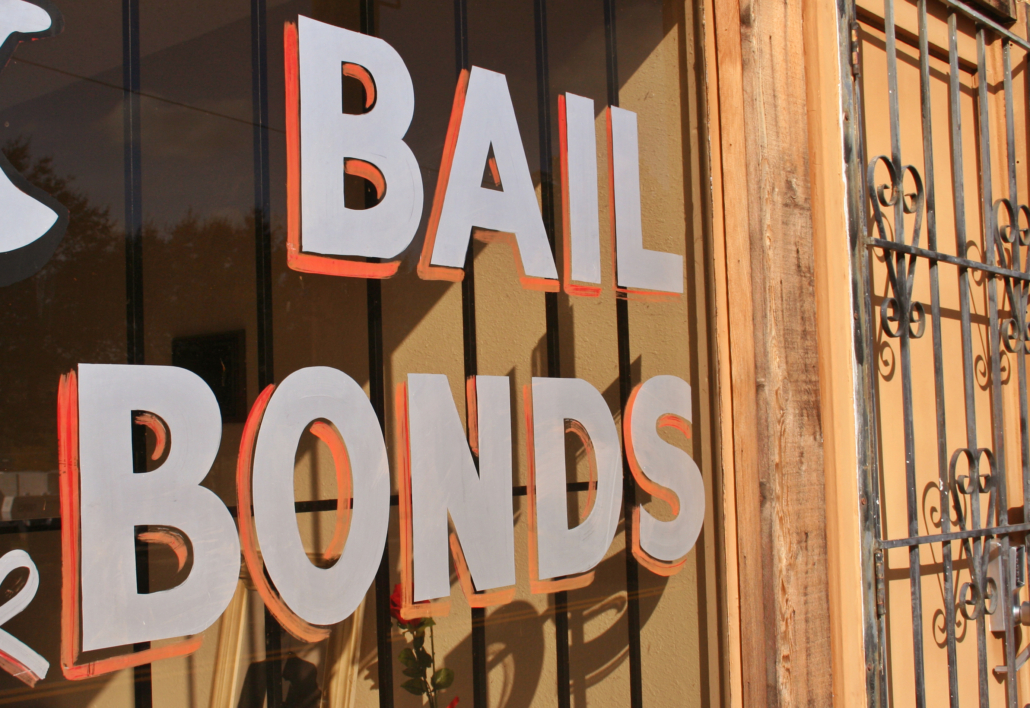Your Total Guide to Recognizing Bond Bond Terms
Browsing the complexities of bail bond terms and problems is an essential component of efficiently taking care of legal difficulties. A complete understanding of important concepts such as bond, collateral, and the ramifications of a failure to show up is essential for accuseds and their family members. Various kinds of bond bonds and their connected prices can dramatically impact the decision-making process. As we check out these aspects, you may discover that false impressions typically shadow judgment, causing possibly damaging consequences. What subtleties exist beneath the surface area of these terms that could form your strategy in a time of need?
What Is a Bail Bond?
A bail bond is a legal contract in between an offender, a bond bondsman, and the court, making certain that the offender will stand for set up court process in exchange for their launch from custodianship. bail bonds service. This legal tool serves to safeguard the passions of the court by providing an economic motivation for the offender to adhere to judicial requirements
Upon the defendant's release, the bail bond stays in result until the verdict of the court situation. Failure to show up in court might lead to forfeiture of the bond quantity, and the bail bondsman might seek the accused to recuperate the costs sustained. bail bonds service. Understanding the dynamics of bail bonds is vital for offenders and their family members as they browse the judicial process.
Key Terms Clarified
Comprehending bond bonds includes familiarizing oneself with several essential terms that are integral to the process. One vital term is "bond," which refers to the amount of cash required to secure the release of an offender from custody while awaiting test. "Bond bail bondsman," or "bondsman," is an additional critical term, denoting a specialist who supplies the necessary funds for bond in exchange for a cost, usually a percentage of the total bond amount.
" Collateral" is likewise substantial; it represents properties promised by the offender or co-signer to make sure the bond's payment. If the defendant fails to show up in court, the security may be surrendered. The term "indemnitor" describes the person who consents to be accountable for the bond, frequently a member of the family or buddy of the implicated.

Sorts Of Bail Bonds
Different sorts of bond bonds offer various functions and satisfy specific scenarios in the lawful system. The most common type is the surety bond, where a bondsman assures the defendant's appearance in court for a cost, generally 10% of the bail amount. This kind is widely utilized due to the fact that it permits individuals that can not manage the complete bail to protect their launch.
One more type is the cash money bond, which calls for the complete bail total up to be paid in cash money to the court. This alternative is frequently liked for lower bond quantities, as it ensures the accused's release without entailing a bondsman (bail bonds service). If the defendant shows up in court as needed, the cash money is refunded at the conclusion of the instance
Additionally, there are building bonds, where property is utilized as collateral for the bail quantity. This can be a feasible option for individuals who possess property however lack liquid funds.
Finally, federal bonds relate to government situations and are usually more tough to get, frequently requiring the help of a specialized bondsman. Recognizing these variations is essential for navigating the bond system efficiently.
Usual Misconceptions
False impressions about bond bonds commonly lead to confusion for accuseds and their families. In truth, bond serves as a financial guarantee that the accused will certainly show up at their scheduled court hearings.
An additional usual mistaken belief is that all bond bonds are the exact same. There are a number of sorts of bond bonds, consisting of guaranty bonds, cash bonds, and building bonds, each with unique attributes and requirements. Understanding these differences is crucial for making educated decisions.
Furthermore, many individuals believe that bail bond representatives are simply finance sharks. In reality, licensed bail bond representatives run within a controlled structure, billing a premium for their services, which is generally a percent of the complete bond amount.
Last but not least, some think that just wealthy people can afford bail. Bail bond solutions are created to help those who may not have immediate accessibility to big sums of cash, enabling a wider segment of the populace to secure their launch while awaiting trial. Clear understanding of these misunderstandings can dramatically minimize stress during a challenging time.
Recognizing Charges and Costs
While browsing the bail bond process, it is necessary to know the fees and expenses linked with safeguarding a bond. Bond bonds generally call for a non-refundable costs, which is a percent of the total bond quantity established by the court. This premium normally varies from 10% to 15%, relying on state regulations and the bail bond company's plans.
Along with the premium, there might be other charges involved. These can include administrative charges for processing the bond, collateral costs if possessions are required to safeguard the bond, and prospective revival costs if the bond requires to be expanded. It is critical to ask the bail bond agent for a comprehensive breakdown of all prices to stay clear of unexpected expenditures.
Conclusion

Comments on “Trusted Options with Bail Bonds Service.”